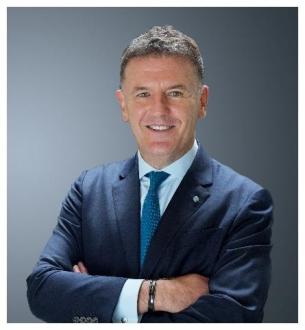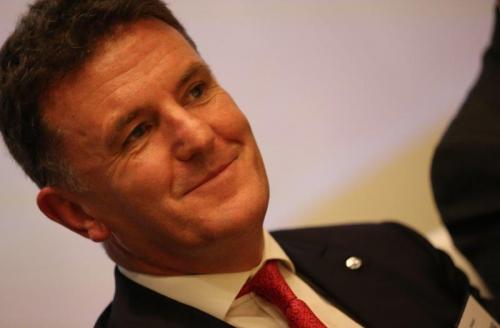Nick Pollard explains the drive by CFA Institute to boost the number of certified investment professionals across Asia, amid a broader goal of raising professional standards.
An investment professional in Hong Kong wants to conquer the world; well, maybe not quite. But Nick Pollard has a vision to enlist an army of professionals to follow his lead and become part of a growing global network aimed at improving standards in the investment industry.
As managing director, Asia Pacific of CFA Institute, one of Pollard’s mandates is to grow his organisation’s membership. This means taking professional examinations. His goal, quite simply, is to make every investment professional in Asia a CFA charterholder.
“The CFA designation is the badge of achievement in the investment management profession and represents a deep knowledge of all investment protocols, a commitment to ethics and a passion for always putting investors first,” he explains.
In line with this, CFA Institute aims to continue to develop future professionals with the necessary technical skills, knowledge and ethics, and with a clear understanding of the role of investment management in society.
“We pride ourselves in helping investors understand that when they place their trust in a CFA charterholder, they can achieve peace of mind knowing that they are in the hands of a professional with the proven expertise and integrity to meet their investment goals and that this person put their interests first,” adds Pollard.
Regional ambition
His role is to spearhead the efforts of this global association of investment professionals in its mission across Asia to advance the profession for the ultimate benefit of society.
In particular, he foresees a healthy growth coming from the fast-growing markets of China and India.
“Asia Pacific is the biggest region of CFA Institute for CFA exam candidates, and China is now the number-one country; it’s bigger than the US,” he explains.
2016 was the first year that this has happened and it will just get bigger, he predicts. “There is lots of growth potential here and I have a good team who are working on growing that footprint, even more so than we have done before.
With offices already in Mumbai and Beijing, he says the association is thinking about another presence on the ground in mainland China.
“Worldwide, we estimate that our core target market of portfolio managers, research analysts, etc barely has 10% of people in these positions holding a CFA charter qualification, so there is a lot of upside,” adds Pollard.
India is a good case in point, as is China, with its significant and growing fund management business.
Pedigree
Pollard knows a thing or two about learning and professional development.
He previously served as CEO of Coutts’ Asia division and most recently was head of international learning and professional development for the private bank’s international business.
Overall, his career spans more than 30 years across banking, wealth management and talent development.
His appointment at CFA Institute almost a year ago followed the opening of new offices in Beijing and Mumbai in 2015, reinforcing the commitment to developing future professionals, delivering member value and building market integrity within key, fast-growing regional markets.
Overcoming hurdles
Yet Pollard and his team do face large challenges in getting their message across to businesses and institutions in Asian countries where there is an adverse mind-set to change.
“Some of the larger institutions in Asia already understand the importance of the CFA designation, and many insist on it,” he says. “But others are less aware of it and this is where we have to educate and explain the advantages of the certification.”
Another hurdle Pollard faces is that, compared with the US and Europe, fewer employers in Asia are willing to fund the cost of the CFA programme or give staff the necessary time off to study for the qualification.
“We have to make it clear that if they help their employees in these ways, they will see the benefits,” he urges.
Passing all three levels of the CFA exams requires dedication and time, but the value is clear to Pollard.
“Hong Kong has the largest number of charterholders in Asia, which is a good thing for the local finance sector,” he says. “And we shouldn’t under-estimate the importance of the designation to building a credible investment industry and a credible workforce in emerging Asian markets like Vietnam.”
Positive signs
Pollard’s vision is supported by underlying growth in the financial sector across the region.
Asian governments, for example, are focused on expanding the local talent pool. Practically every 25-year old in Asia who wants a career in investment management now recognises the importance of the qualification, he explains.
“The credential is globally recognised so it has a passporting effect, helping charterholders in Asia to work overseas,” adds Pollard. “Global credibility is a very strong motivator for people in Asia to do the CFA Program, whether they want to stay at home or travel.”
While he doesn’t want to place an upper limit on charterholders in Asia, the ultimate goal for CFA Institute is bold one: to have 100% coverage of every relevant employee in every firm in the investment industry.

Managing Director, Asia Pacific at CFA Institute







